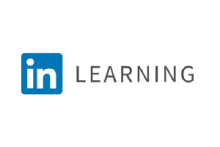
Mentoring is a trusted staff development support in the workplace. It provides a safe, supportive and collaborative environment for the mentees to assist them in their careers. UL Advance faculty mentoring scheme, is a Mentee-led relationship between two people within the same department. It builds on the mentoring culture and climate of UL, strengthening and embedding a supportive and inclusive culture. This scheme is administered by your department and supported by HR Talent Development.
Here are a few words about the Faculty Mentoring scheme from our Provost and Deputy President, Professor Shane Kilcommins
A document on the Importance of Mentoring at UL has also been prepared by Provost and Deputy President, Professor Shane Kilcommins .
Dear All,
Professional development of our colleagues is key to their success and contributes significantly to being the University we want to be – ambitious, collegiate and inclusive. We all have a role to play in creating a culture where colleagues are supported to enable them to be their best.
Among many other initiatives, it is important that all colleagues can avail of mentoring. I have prepared this document to give you a sense of how I see the importance of mentoring at UL. We hope that you will engage with us in this to enhance this culture.
I would like to thank Rina Carr and colleagues in the AHSS office for establishing an excellent model in the AHSS Faculty. Thank you to the HR Talent Development Team for their work in implementing UL Advance. Questions can be forwarded to hrtalentdevelopment@ul.ie .
Kind Regards,
Professor Shane Kilcommins
Provost and Deputy President
You will find further information about UL Advance and its benefits in the UL Advance Brochure.
Who is this scheme for?
The aim is to embedded mentoring in every faculty, department, and division in the University, however this will take time. For 2022, UL Advance is available to all Assistant Professors, Senior Administrators and Administrators across the four faculties.
Dr. Neil O Connor speaks about his Mentoring experience
Carol Huguet speaks about her Mentoring experience in UL.
Getting started
Whether you are a mentor or a mentee the HR Talent Development team offer a number of supports including training, guidance and supporting documents. For more information expand each of the sections below.
Step 1: Make some time for self-reflection
Its important to take some time to think about what you want to get out of your mentoring relationship. What is your motivation for having a mentor? If you are clear yourself about what you want to achieve from faculty mentoring, this will make it easier for your mentor to be effective in their role. Think about any past experiences of mentoring you may have had – as a mentor or a mentee. You will bring valuable learning from this to any new mentoring relationship.
Its important to consider areas such as trust, confidentiality and boundaries, as these are all intrinsic to the mentoring relationship. Are you willing to lead the mentoring relationship? Are you going to be open with your mentor? These are all important factors to consider and get comfortable with from the outset.
Step 2: Pairing
Your Head of Department will pair you with a suitable mentor for the year. Mentors will change in subsequent years, bringing a fresh perspective and helping to expand networks year on year.
Step 3: Attend the training
HR Talent Development will provide mentee training which will help you be clear on what to expect from faculty mentoring and give practical guidance on how to make your mentoring relationship as successful as possible.
Step 4: Mentoring Agreement
Once you have both been trained, the mentoring relationship can begin. At your first meeting, it is important to draft a mentoring agreement together. You’ll be given lots of guidance on how to approach this at your training session.
Step 5: Mentoring Meetings
The mentoring relationship has a duration of 3 * 1 hour meetings( including the first meeting where the mentoring agreement is drafted.) You need to take the lead on ensuring these meetings happen.
Step 1: Make some time for self-reflection
Think about what you want to get out of mentoring. What is your motivation for being a mentor? Think about your own strengths and weaknesses. Think about any past experiences of mentoring you may have had – as a mentor or a mentee. What worked well in these relationship and what would you do differently. What were lightbulb moments for you? Most importantly, are you prepared to be the one doing most of the listening, especially during the first few meetings? Are you willing to allow the mentee take the lead in the relationship?
Step 2: Pairing
Your Head of Department will pair you with a suitable mentee for the year. Mentees will change in subsequent years, bringing a fresh challenges year on year.
Step 3: Attend the training
HR Talent Development will provide mentor training which will help you be clear on what to expect from faculty mentoring and give practical guidance on how to make your mentoring relationship as successful as possible.
Step 4: Mentoring Agreement
Once you have both been trained, the mentoring relationship can begin. At your first meeting, it is important to draft a mentoring agreement together. You’ll be given lots of guidance on how to approach this at your training session.
Step 5: Mentoring Meetings
The mentoring relationship has a duration of 3 * 1 hour meetings( including the first meeting where the mentoring agreement is drafted.)
HR Talent Development will provide mentor and mentee training which will help you be clear on what to expect from faculty mentoring and give practical guidance on how to make your mentoring relationship as successful as possible.
Mentor and Mentee Online Modules
For more details on this training see the Talent Development (HR) space on UL Connect.

You may also find these LinkedIn Learning Resources useful
- Being a Good Mentor
- Mentoring Others
- Being a Good Mentee
- Finding and Benefiting from a Mentor
- Sanyin Siang on Strategic Mentoring
- How to Be a Good Mentee and Mentor
These documents have been created as helpful guides and references to support your mentoring relationship. There is no obligation to use these documents.
UL Advance Mentoring Agreement Document

